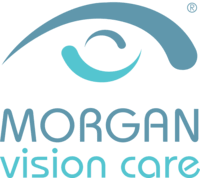
Navigating Vision Health: Understanding Macular Degeneration
As February unfolds, Morgan Vision Care focuses on Macular Degeneration Awareness Month, a time dedicated to illuminating this vision-threatening condition. Macular degeneration is a progressive eye disease that impacts the macula, the central part of the retina crucial for sharp, detailed vision. Let's delve into the symptoms and causes that characterize this condition, underscoring the significance of early diagnostics and treatment to preserve your vision.
Unmasking the Signs: Symptoms of Macular Degeneration
The early stages of macular degeneration may go unnoticed, but as the disease progresses, symptoms become more apparent. Common signs include blurred or distorted vision, difficulty recognizing faces, and a gradual loss of central vision. Straight lines may appear wavy, and dark spots may obstruct the visual field. It is crucial to recognize these symptoms promptly, as early intervention can significantly impact the course of the disease.
Peering into Causes: Understanding Macular Degeneration Triggers
Macular degeneration is a condition that causes vision loss in the center of the visual field. Although the exact causes of macular degeneration are not fully understood, certain risk factors increase the susceptibility of an individual to develop this condition. Age, family history, smoking, and genetics play pivotal roles in the development of macular degeneration.
Age is a significant risk factor for macular degeneration, as the disease often manifests in individuals over 50. As people age, the risk of developing macular degeneration increases, and this is particularly true for those over the age of 60.
Family history is also a crucial factor in the development of macular degeneration. If someone in your family has macular degeneration, you are at a higher risk of developing the condition.
Smoking is another significant risk factor for macular degeneration. Smoking increases the risk of developing macular degeneration by two to three times. Smoking also makes the condition worse for those who already have it.
Understanding these triggers will help you proactively mitigate risks and prioritize eye health. If you have a family history of macular degeneration, it is essential to get regular eye exams to detect any signs of the condition. Quitting smoking can also help reduce the risk of developing macular degeneration. Eating a healthy diet rich in fruits, vegetables, and omega-3 fatty acids can also be beneficial in preventing macular degeneration.
The Power of Early Diagnostics: Detecting Macular Degeneration
An eye exam is a critical tool in the early detection of macular degeneration. Symptoms may not manifest until later stages, making regular eye examinations imperative. Eye doctors can use various diagnostic tests, including optical coherence tomography (OCT) and fundus photography, to assess the macula's health and identify early signs of the disease. Early intervention, often prompted by routine eye exams, can help preserve vision and slow the progression of macular degeneration.
Take Control of Your Vision: Schedule an Eye Exam Today!
As we immerse ourselves in Macular Degeneration Awareness Month, the call to action is clear — prioritize your vision health by scheduling an eye exam. An eye doctor may be able to detect early signs of macular degeneration before symptoms appear, offering a crucial opportunity for intervention. Take a proactive step toward preserving your vision; schedule an eye exam with Morgan Vision Care in Virginia Beach today. Your eyes deserve the care and attention that can significantly impact your well-being.
